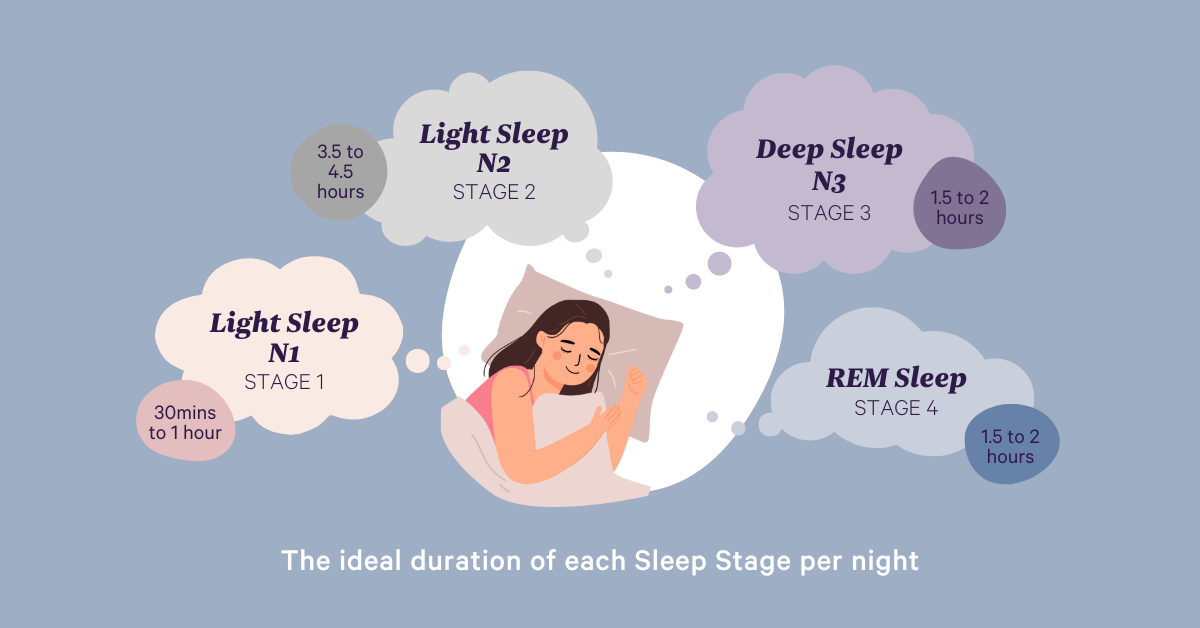Deep sleep, also known as slow-wave sleep (SWS), is a critical phase of the sleep cycle that profoundly impacts physical health, cognitive function, and emotional well-being. This article delves into the mechanisms, benefits, and strategies to enhance deep sleep, providing a comprehensive understanding of its vital role in overall health.
1. Introduction to Deep Sleep
Deep sleep is one of the four stages of the sleep cycle, characterized by slow brain waves, reduced heart rate, and minimal muscle activity. It typically occurs in the first half of the night and is essential for restorative processes in the body and brain.
2. The Physiology of Deep Sleep
During deep sleep:
- Brain Activity: The brain exhibits slow delta waves, indicating a state of deep rest.
- Body Functions: Heart rate and breathing slow down, and muscles relax.
- Hormonal Release: Growth hormone is secreted, aiding in tissue repair and growth.
- Memory Consolidation: The brain processes and consolidates information from the day.
3. The Importance of Deep Sleep
Deep sleep plays a crucial role in:
- Physical Health: Facilitates tissue repair, muscle growth, and immune system strengthening.
- Cognitive Function: Enhances memory consolidation and learning.
- Emotional Well-being: Regulates mood and reduces stress levels.
- Metabolic Health: Supports healthy metabolic and hormonal functions.
4. Factors Affecting Deep Sleep
Several factors can influence the quality and duration of deep sleep:
- Age: Deep sleep decreases with age, particularly after the age of 60.
- Lifestyle: High levels of physical activity can promote deeper sleep.
- Stress: Chronic stress can disrupt sleep patterns and reduce deep sleep.
- Substances: Caffeine and alcohol can interfere with deep sleep stages.
5. Strategies to Enhance Deep Sleep
To improve deep sleep:
- Maintain a Consistent Sleep Schedule: Go to bed and wake up at the same time daily.
- Create a Relaxing Bedtime Routine: Engage in calming activities before sleep.
- Optimize Sleep Environment: Keep the bedroom cool, dark, and quiet.
- Limit Screen Time: Avoid electronic devices at least an hour before bed.
- Exercise Regularly: Engage in physical activity during the day, but not too close to bedtime.
6. Common Myths About Deep Sleep
- Myth 1: “More sleep always means more deep sleep.”
- Fact: Quality matters more than quantity; fragmented sleep can reduce deep sleep.
- Myth 2: “Alcohol helps you sleep better.”
- Fact: While alcohol may induce sleep, it disrupts deep sleep stages.
- Myth 3: “Older adults don’t need deep sleep.”
- Fact: Deep sleep is still essential for older adults, though it may decrease with age.
7. When to Seek Professional Help
Consult a healthcare provider if you experience:
- Persistent difficulty falling or staying asleep.
- Excessive daytime sleepiness.
- Snoring or choking during sleep.
- Mood disturbances or memory problems linked to sleep issues.
8. Frequently Asked Questions (FAQs)
Q1: How much deep sleep do adults need?
Answer: Adults typically require about 1.5 to 2 hours of deep sleep per night, which constitutes approximately 20% of a full night’s sleep. However, individual needs may vary based on age, lifestyle, and overall health.
Q2: Can deep sleep be measured?
Answer: Yes, deep sleep can be measured using polysomnography in sleep studies or through consumer-grade sleep trackers that monitor movement and heart rate, providing estimates of sleep stages.
Q3: Does deep sleep affect memory?
Answer: Absolutely. Deep sleep is crucial for consolidating declarative memory, which involves facts and information, by transferring data from short-term to long-term storage in the brain.
Q4: Can stress impact deep sleep?
Answer: Yes, chronic stress can elevate cortisol levels, which may interfere with the body’s ability to enter deep sleep stages, leading to disrupted sleep patterns.
Q5: Is deep sleep the same as REM sleep?
Answer: No, deep sleep (slow-wave sleep) and REM (Rapid Eye Movement) sleep are distinct stages. Deep sleep is associated with physical restoration, while REM sleep is linked to dreaming and cognitive functions.
Q6: Can certain foods promote deep sleep?
Answer: Yes, foods rich in magnesium, such as leafy greens and nuts, and those containing tryptophan, like turkey and dairy, may help promote relaxation and enhance deep sleep.
Q7: Does age affect deep sleep?
Answer: Yes, as people age, the amount of deep sleep typically decreases, and sleep patterns may become more fragmented, leading to lighter sleep stages.
Q8: Can exercise improve deep sleep?
Answer: Regular physical activity can promote deeper sleep; however, exercising too close to bedtime may have the opposite effect by increasing alertness.
Q9: Is deep sleep linked to immune function?
Answer: Yes, deep sleep plays a vital role in strengthening the immune system by promoting the production of cytokines, which help fight infections and inflammation.
Q10: Can deep sleep be enhanced naturally?
Answer: Yes, natural methods such as maintaining a consistent sleep schedule, reducing caffeine intake, and creating a calming bedtime routine can enhance deep sleep quality.
9. Conclusion
Deep sleep is an essential component of a healthy sleep cycle, contributing significantly to physical health, cognitive function, and emotional well-being. By understanding its importance and implementing strategies to improve its quality, individuals can enhance their overall health and quality of life. Prioritizing deep sleep is not merely about spending more time in bed but about fostering habits that promote restorative rest.
